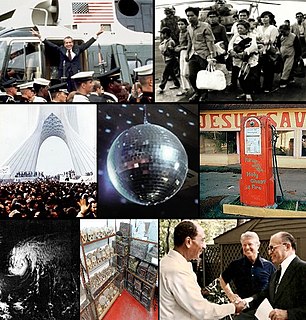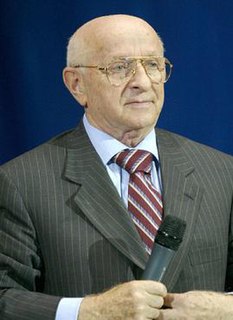A list of films produced in the Soviet Union between 1970 and 1979:
A list of films produced in the Soviet Union between 1970 and 1979:

Andrei Arsenyevich Tarkovsky was a Russian film director, screenwriter, and film theorist. He is widely regarded as one of the greatest and most influential filmmakers in Russian and world cinema. His films explored spiritual and metaphysical themes, and are noted for their slow pacing and long takes, dreamlike visual imagery, and preoccupation with nature and memory.

The cinema of the Soviet Union includes films produced by the constituent republics of the Soviet Union reflecting elements of their pre-Soviet culture, language and history, albeit they were all regulated by the central government in Moscow. Most prolific in their republican films, after the Russian Soviet Federative Socialist Republic, were Armenia, Azerbaijan, Georgia, Ukraine, and, to a lesser degree, Lithuania, Belarus and Moldavia. At the same time, the nation's film industry, which was fully nationalized throughout most of the country's history, was guided by philosophies and laws propounded by the monopoly Soviet Communist Party which introduced a new view on the cinema, socialist realism, which was different from the one before or after the existence of the Soviet Union.

The 1970s was a decade of the Gregorian calendar that began on January 1, 1970, and ended on December 31, 1979.

Colossus: The Forbin Project is a 1970 American science fiction thriller film from Universal Pictures, produced by Stanley Chase, directed by Joseph Sargent, that stars Eric Braeden, Susan Clark, Gordon Pinsent, and William Schallert.
The Ostern or Red Western was a film genre created in the Soviet Union and Eastern Bloc as a variation of the Western films that originated in the United States. The term now includes two related genres:
This is an index of lists of films by year, awards, countries of origin and genre among other factors.

Alexander Yakovlevich Gomelsky was a Russian professional basketball player and coach. The father of Soviet and Russian basketball, he was inducted into the Naismith Memorial Basketball Hall of Fame in 1995 and the FIBA Hall of Fame in 2007.

Anatoly Vasilievich Kuznetsov was a Russian-language Soviet writer who described his experiences in German-occupied Kyiv during World War II in his internationally acclaimed novel Babi Yar: A Document in the Form of a Novel. The book was originally published in a censored form in 1966 in the Russian language.
Edward Samoilovich Kuznetsov is a Soviet-born dissident, human rights activist, Prisoner of Zion and writer who settled in Israel in 1979.

Cinema of Estonia is the film industry of the Republic of Estonia. The motion pictures have won international awards and each year new Estonian films are seen at film festivals around the globe.
Kievnauchfilm was a film studio in the former Soviet Union located in Kyiv, Ukrainian SSR. Although it was created in 1943 to produce popular science films, it eventually became best known for its animated films, and remained active in Ukrainian animation for decades.
A list of films produced in the Soviet Union between 1917 and 1991.

The 1989 Soviet census, conducted between 12 and 19 January of that year, was the last one that took place in the Soviet Union. The census found the total population to be 286,730,819 inhabitants. In 1989, the Soviet Union ranked as the third most populous in the world, above the United States, although it was well behind China and India.
The cinema of Mongolia has been strongly influenced by the cinema of Russia, which differentiates it from cinematic developments in the rest of Asia.
Luna commonly refers to:

The 36th annual Venice International Film Festival was held from 24 August to 5 September 1979. There was no jury because from 1969 to 1979 the festival was not competitive.

In January 1979, the Soviet Union conducted its first census in nine years. Between 1970 and 1979, the total Soviet population increased from 241,720,134 to 262,084,654, an increase of 8.4%.
The following lists events that happened during 1979 in the Union of Soviet Socialist Republics.